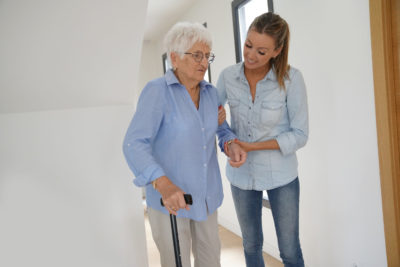Aging in Place: Signs of the Times
Instead of Loving TRUTH, We Make True, That Which We Love.
~Robert Ringer Looking Out for Number 1
Aging in Place
The Robert Ringer quote above is one of my all-time favorites because it’s so right on. When it comes to the older loved ones in our lives, we want to think they will be forever buoyant. In fact, this phenomenon is so true to the human experience it has been immortalized by the words of Dylan Thomas – Do Not Go Gentle Into That Good Night.
The thought of our parents or grandparents giving way to the forces of Entropy is unthinkable; yet with each visit the bar is lowered and new normals are established and reestablished. Often, we notice but either deny or rationalize until we can no longer dispute the reality of age-related declines. I know from firsthand experience because I went through the heart-breaking stages of physical/mental breakdown in my loved ones.
In case you need assistance in recognizing when your family member/s may need help here is a list (many I failed to see soon enough):
1. Lack or slipping of personal Hygiene
2. Unexplained dents in the car/s
3. Falls
4. Wounds in various stages of healing
5. Unpaid bills
6. Clutter piling up
7. House/yard need care/maintenance
8. Expired/spoiled groceries in freezer and cabinets
9. Forgetting to take medications/on time
10. Trouble getting up from a seated position
11. Unsteady gait
12. Using furniture as support when negotiating the room
13. Depressed or irritable moods increasing
14. Loss of interest (neglect pets, plants, etc.)
15. Changes in bowel habits
16. Inability to ask for assistance
17. Confusion of time/dates/events
18. Repeating, repeating, repeating
19. Lack of concentration
20. Difficulty accomplishing daily tasks
21. Looking for “lost” items constantly
22. Increased time sitting
23. Excessive ordering of products/magazines/donating to charities
24. Increased calls to 911 for assistance
25. Weight loss/dehydration
Love Can be Blind
Some of these changes can be subtle over time, others acute, but they tend to accumulate and only progress to higher levels requiring interventions. We love; therefore, we sometimes see what our hearts will only let us see–but in the end we act to make them feel cared for, loved and safer.
Reversing the roles and parenting our parents is one to the most soul-challenging experiences of a caregiver’s life (the hardest thing I have ever done) but it becomes necessary.
________________________________________________________________________________________
Several things to keep in mind:
1. Do your best to involve them in the decisions your making (buy-in = lower barriers to adoption)
2. Patience
3. Keep communication lines open with loved ones (and family/friends)
4. Keep your sense of Humor (this may save you)

